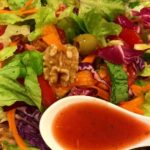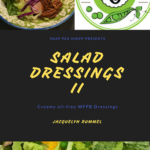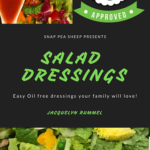Every day I read something about some vegetable or fruit we shouldn’t eat because of something in it.
Doctors may tell patients not to eat vegetables because of the fiber to eliminate fruit because of the sugar.
Some people feel terrible after converting to a WFPB diet and stop.
We read about Leptins, oxalates, sulforaphane, Solanine (nightshades), Uric acid, cyanide, glycoside, toxins, pesticides, listeria and E-coli contamination, and decide it’s too dangerous to eat produce!
It is difficult enough to transition to a WFPB lifestyle without dealing with a fear of what you are transitioning to!
Truth is, too much of ANYTHING may not be a good thing. There are always going to be some adjustments the body has to make to a change in diet.
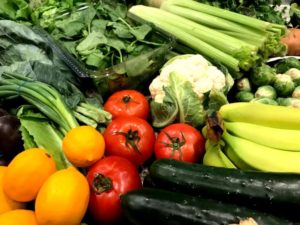
Choosing Produce
Here are 12 things to consider!
1. Increase of fiber may cause gas, bloating and discomfort. People complain about flatulence on a plant based diet. Use kombu in your beans or broth, or drink a broth with kombu or ginger. Realize it’s a temporary condition!
2. Big or sudden changes in a diet can alter bowel habits.
Often you may develop a case if diarrhea from too many greens or fruits. Conversely eating mostly cooked plants could result in constipation.
3. Increase in fiber from plant seeds and skins can aggravate existing conditions. A sudden change might cause a flare-up of diverticulitis or IBS. It helps to peel the plants and limit seeds and nuts if you feel discomfort. Over time the fiber should help these conditions!
4. Most vitamins and drugs are derived from plants . Eating the plants may have a similar effect. Ibuprofen for example is derived from cherries. Grapefruit, soy and gluten may affect the Thyroid. Be aware that plants can be a natural medicine!
5. Non organic produce may have high concentrations of pesticides. Often it is the pesticide and not the plant that is responsible for your symptoms. Always peel plants if the are not organically grown! Be aware that plants are fed to animals so you are not avoiding pesticides by eating animal products!
6. Plant food is an automatic increase in water. This a good thing if you were not drinking enough water before the change. Keeping the same hydration level after going plant based may result in over hydration, resulting in frequent potty breaks or diarrhea.
7. Meat, dairy and processed food often have addictive components. Changing immediately from animal to plant foods can result in withdrawal symptoms such as cravings, headaches, nausea and even flu like symptoms as your body detoxes. You may need to transition slowly!
8. You could be eating the same plant foods too frequently. If you eat the same foods day in and day out, you could be building up toxins as in the case of nightshades. You may also become deficient in some vitamins and minerals. Eat a wide variety of plant foods! Keep a food diary and notate high concentrations of the same foods. Make sure you are including foods with magnesium, zinc and potassium as these seem to be the easiest to deplete.
9. You could be suddenly exposing yourself to unknown allergens. Eating from a food group that used to be a small portion of your diet may cause an allergic reaction if you have no immunity for that allergen. For example, if you’ve never eaten peanuts you could have a severe reaction to them. Compare any symptoms to your food diary intake to uncover a pattern or allergy.
10. Big food makes little profit from people on a WFPB diet. They spread propaganda to sway you back to the very foods you are withdrawing from. Often a doctor profits greatly from a plant food convert by offering useless supplements or programs to “offset unwanted symptoms”.
11. It’s great to experiment, but research your food! There are some foods that are harmful when eaten raw, like mushrooms, rhubarb, bottle gourd and potatoes. Some require double cooking like Callaloo and other greens. It’s all about learning how to prepare your food!
12. Be aware that your body will respond to any major change in your diet. Going from WFPB back to animal foods will give you adverse symptoms as well. Symptoms you were simply used to at the time.
What are YOUR concerns about plant foods?

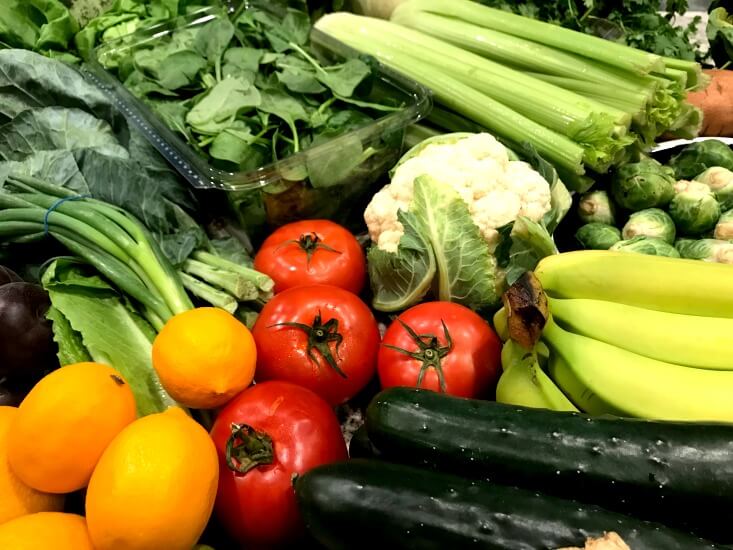

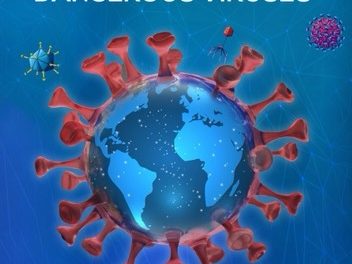


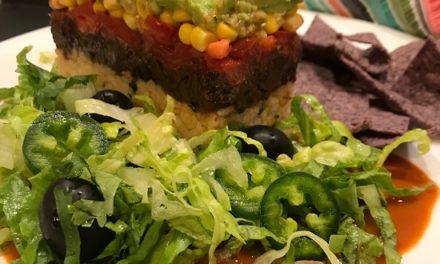

 Grab a cup of herbal tea and feel free to browse my site! This is a friendly zone and I welcome your comments on Baa-baa-blog and my recipes!
Grab a cup of herbal tea and feel free to browse my site! This is a friendly zone and I welcome your comments on Baa-baa-blog and my recipes!
